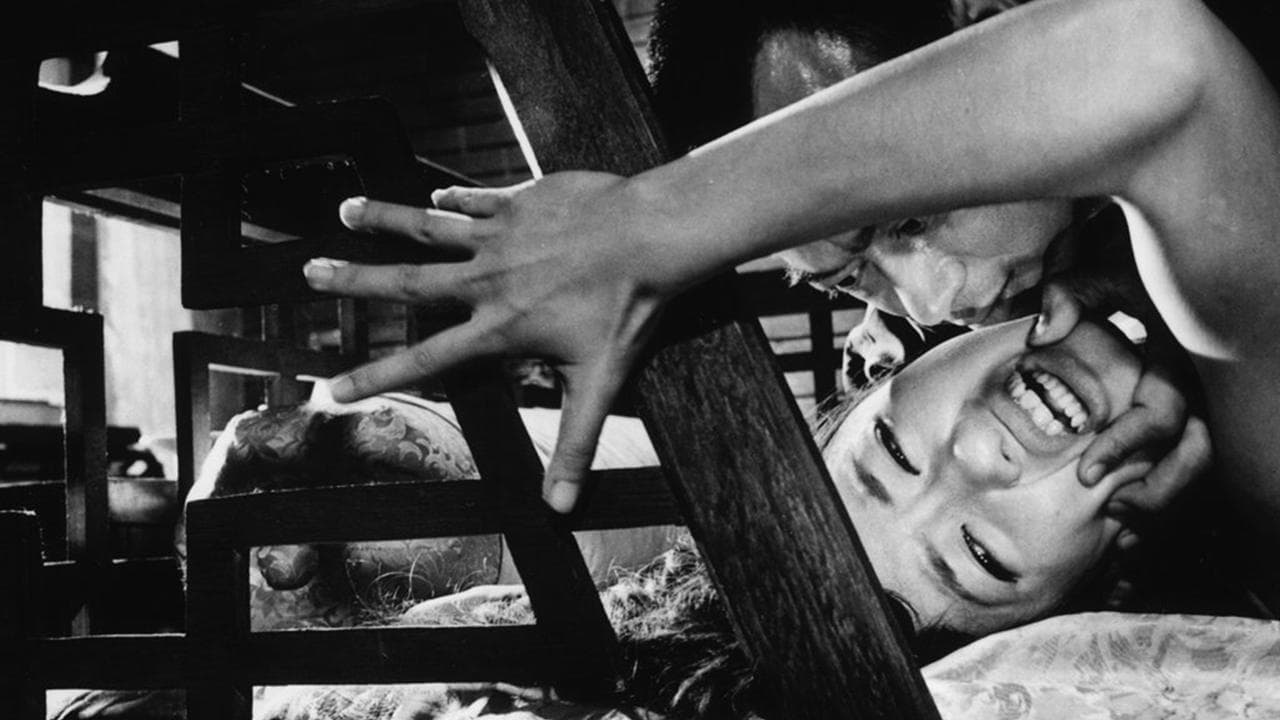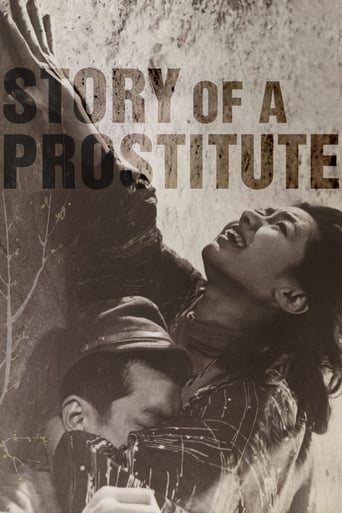GarnettTeenage
The film was still a fun one that will make you laugh and have you leaving the theater feeling like you just stole something valuable and got away with it.
Clarissa Mora
The tone of this movie is interesting -- the stakes are both dramatic and high, but it's balanced with a lot of fun, tongue and cheek dialogue.
Ava-Grace Willis
Story: It's very simple but honestly that is fine.
Jonah Abbott
There's no way I can possibly love it entirely but I just think its ridiculously bad, but enjoyable at the same time.
Uriah43
After being rejected for marriage by her lover, a prostitute named "Harumi" (Yumiko Nogawa) travels to a military outpost deep inside Manchuria to work in a brothel servicing soldiers in the Imperial Japanese Army during World War II. While there she meets an officer by the name of "Narita" (Isao Tamagawa) who treats her with contempt but is also quite possessive. Not long afterward she meets his orderly "Shinkichi Mikami" (Tamio Kawaji) who she quickly falls in love with. Unfortunately, Mikami is hesitant at first to return her affections because he knows that would make Narita furious. Meanwhile, the war rages on all around them. Now what I liked about this movie was the manner in which it showed the dark side of war. However, that also proved to be a weakness of sorts because at times it got too bleak. Likewise, the over-acting, typical of many Japanese movies, was a bit too much at times as well. In any case, although it's clearly a work of fiction there were some scenes which were based on historical experiences by the writer and because of that I found this to an interesting movie from an historical perspective. All things considered then, I rate it as slightly above average.
MartinHafer
"Sunpu Den" is a film from director Seijun Suzuki is both anti-war and anti-prostitution, as it paints a bleak story of a young woman, Harumi. The story begins with Harumi being dumped by her boyfriend. In reaction, she volunteers to be a 'comfort woman' on the Japanese front lines in China. The comfort women were prostitutes provided by the government for the troops--and this small group of women are to satisfy the sexual needs of a thousand men! To make things worse, the Adjutant in charge is a brutal jerk who mistreats the women. Harumi hates him, though she later falls in love with this man's assistant. What happens next is a tragic waste of life and is an indictment of the Japanese war machine.This is what you might call a 'feel-bad movie'. It is meant to be sad and awful and it is. The film is compelling viewing but isn't nearly as good as other Japanese anti-war films like "Burmese Harp" or "Fires on the Plain". Very good but not great.
Ehsan Azar
I was surprised to see only few comments for this movie! I found it a quite amusing and worth watching foreign film. There are some beautiful b/w scenes, and the contrast of love and war that remember me of Eisenstein's master pieces. I am fond of the movies which show some psychotic aspect of human being, and this movie looks so real in depicting a prostitute's mentality, one who has lost her lover before and tries to keep some one for her in this lonely world. As the title suggests, the film is really about Harumi (the prostitute) and the war is another story happening at the background, although the movie is considered as anti-militaristic.
zetes
Most likely the closest Suzuki ever got to making a prestige film. It probably wasn't viewed as such at the time, as it was a remake of a movie called Escape at Dawn that was generally considered a classic at the time (it was scripted by Akira Kurosawa and directed by Senkichi Taniguchi in 1950). Story of a Prostitute seemed like a much more lurid version of the older film. Both were anti-war pictures, but Escape at Dawn was romantic and tragic. Story of a Prostitute is harsh and cynical. Its scenes are often comic, which clashes with the standard view of war. In an interview on the new Criterion disc, Suzuki, a veteran himself, says that he found a lot of black humor and absurdity in his wartime experience. All three of WWII-themed films I've seen from him, which cover the pre-war (Fighting Elegy), the actual war (Story of a Prostitute), and post-war (Gate of Flesh) periods all incorporate some level of absurd, black comedy. The three films actually make a good trilogy (the rest I've seen are all yakuza or crime films). Story of a Prostitute is a very powerful anti-war film, though it is lurid and not nearly as powerful as something like, say, Kobayashi's The Human Condition. Yumiko Nogawa, who also starred in Gate of Flesh, gives a fantastic performance. But it is, as usual, Suzuki's supreme visual skills – in black and white in this instance – that make the film a stunning and memorable experience. His artistic imagination in cinematographic matters is nearly unsurpassed in the entire realm of cinema.

